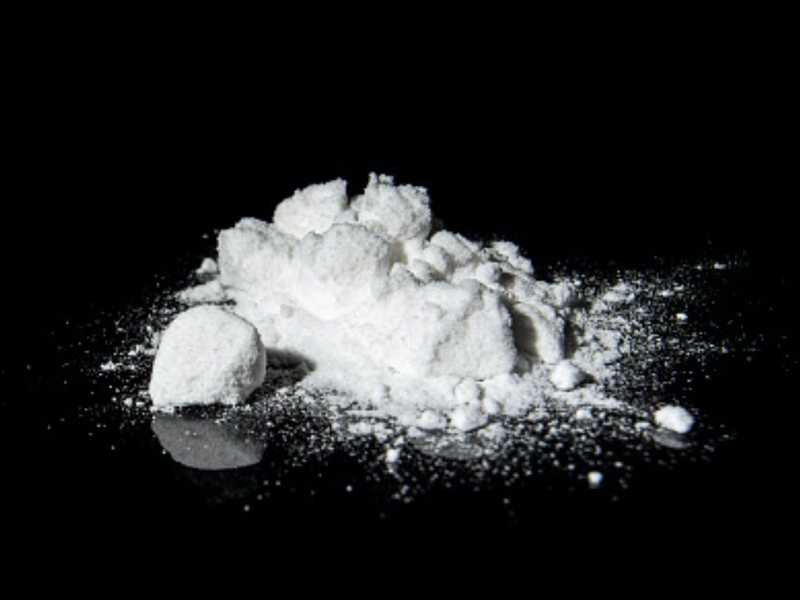Cannabis has been shown as a promising alternative to opioids and possibly even a way to help people free themselves from the addiction to them. Accessibility to medical cannabis has even been directly correlated to a decrease in opioid use within regions in the United States where marijuana is legal. For patients with chronic pain, the analgesic effect of cannabis makes it a viable alternative to prescription opioids.
As previously reported, CBD in particular may help with addictions to opioids because it reduces the desire for drug-seeking behaviours, as seen through a mouse modeled study and anecdotal evidence among humans.
Cannabis Reduces Addiction to Crack Cocaine
The endocannabinoid system is deeply connected with how drugs are processed in the human body with established patterns of addiction. A recent study published in the journal Addictive Behaviors shows the potential for cannabis to help patients with addictions to crack cocaine.
Crack is a crystalline version of cocaine that’s normally found in a powdered form. It’s heated and smoked, which produces an extremely potent high far stronger than cocaine. The study out of the British Columbia Centre on Substance Abuse, based in Vancouver, looked at 122 people. The individuals featured in the study all consumed crack and were tracked over a three-year period. When cannabis was consumed, overall consumption of crack cocaine fell.
M.J. Milloy, the senior author of the study and an infectious diseases epidemiologist at the British Columbia Centre on Substance Abuse said about the study, "We're not saying that these results mean everyone will be able to smoke a joint and forget the fact that they are dependent on crack…What our findings do suggest is that cannabinoids might play a role in reducing the harm of crack use for some people.”
This study provided similar results to a much smaller study that was conducted in Brazil. The Brazil study, which only featured 25 people, found that two-thirds of those people stopped using crack when they consumed cannabis.
Mice Modeled Study Looking at Cocaine Addiction & Cannabis
Another study, which was published in the journal Natural Neuroscience in 2011, was a mouse modeled study that looked at cocaine addiction and cannabis. Cocaine is essentially a less concentrated version of crack. The study conducted by joint researchers from Beijing and Baltimore, looked at the self-administration of cocaine by mice; researchers intentionally got mice addicted to cocaine and then taught them how to administer it on their own.
Some of the mice were then treated with a synthetic cannabinoid, which reduced their desire for cocaine. The study, though conducted with a different substance, was very similar to the mouse modeled heroin study.
Another similar study was conducted in Spain in 2005. This study, which was published in the journal Neuropharmacology, looked at how CB1 receptors affect dependency in mice. The study indicated that CB1 receptors are crucial in addiction and the desire to self-administer opioids.
Cannabis & Addiction
The issue with crack addiction has been largely overshadowed by the opioid epidemic. As such, it’s important to look at the potential that cannabis has on addiction overall. Crack use is often tied with other diseases and conditions like HIV and hepatitis C, so addressing addiction is vital in improving the overall health of the crack-using population. The idea of using cannabis to treat an addictive condition is still seen as controversial, but the connection of addiction with the body’s internal endocannabinoid system is becoming increasingly evident.
Though cannabis isn’t necessarily a cure for crack addiction, it indicates a strong necessity for further study into how cannabis could aid people with crack addiction. Milloy, author of the British Columbia Centre for Substance Abuse study, stated, "We certainly have no illusions that this is the final word on the matter. Indeed, I think what it really is, it may be a first step…So what we hope is that further study will let us know if it is in fact an effective substitution treatment for crack cocaine use disorder. To that end, we are putting together a clinical trial, which we hope will better test the hypothesis that cannabis could be useful to people who are suffering from this disorder."
A clinical trial by the centre could be the evidence needed to conclusively determine if cannabis is the key to helping free people from the bonds of crack addiction.
